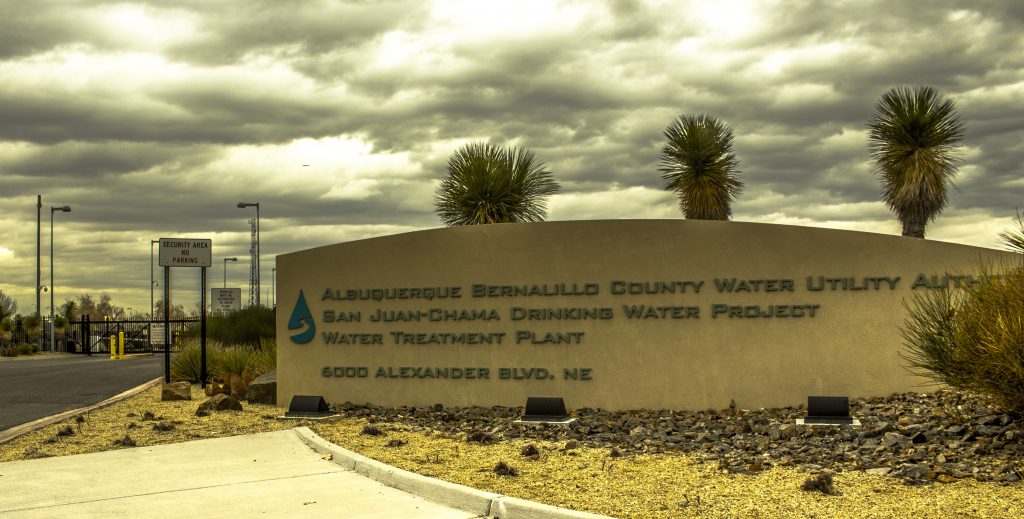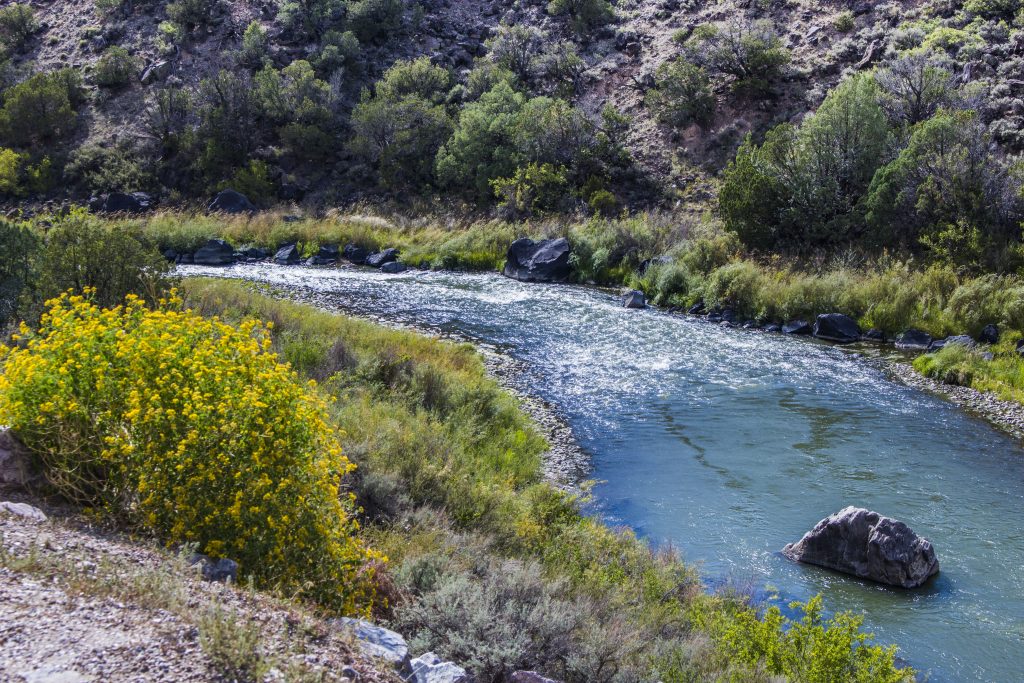[vc_row][vc_column width=”1/1″][text_output]
ANSWERED QUESTION
Why does Albuquerque’s water taste funny?
The most popular questions we’ve received as part of our Curious New Mexico project are about Albuquerque’s water. Jessica Woodard asked why Albuquerque’s water tastes funny. Reporters Tania Martinez, Mia Clark, Brian DeGruchy and Evan Barela found that river water, chlorine and arsenic could affect water taste.

By Tania Martínez / NM News Port
Locals have mixed opinions on Albuquerque’s drinking water. Some say it tastes funny, while others say it tastes just fine.
David Morris, the Public Affairs Manager for the Albuquerque Bernalillo County Water Utility Authority (ABCWUA), says taste varies from person to person.
“The taste of water is a very subjective thing,” Morris said. “To a certain extent, it depends on what you are used to.”
Albuquerque won a regional blind taste test issued by the American Water Works Association last September.
“Our water pitted against other waters from around the region, […] mostly New Mexico and Colorado,” Morris said.
A panel of celebrity judges chose Albuquerque’s drinking water over others like Denver and East Cherry Creek Valley, CO.
The ABCWUA is a government agency whose job is to provide quality drinking water to Albuquerque and regulate its sources—ground water and surface water.
Albuquerque’s ground water comes from wells in various areas in the city that tap into the underground aquifer. Before the a new river diversion project came into use in 2008, ground water was Albuquerque’s sole source of drinking water.

The Rio Grande north of Albuquerque receives water from the San Juan River and the Chama River. Photo by Evan Barela / NM News Port
According to the ABCWUA website, the San Juan-Chama River Drinking Water Project, a river diversion project, cost $400 million in new infrastructure.
The project taps into surface water transported from the Colorado River basin and is released into the Rio Grande. From there, the ABCWUA diverts the water from the River and treats it.
The project yields positive results, like higher aquifer levels and reduced water usage in the city. One of the primary reasons for the project is to heighten aquifer levels in the event of severe drought.
By law, the U.S. Environmental Protection Agency requires chlorine to be added to all drinking water for disinfection.
Sharon Sivinski, education coordinator for ABCWUA, says this could be a potential cause of the local drinking water’s “funny” taste.
“We have to always put chlorine in any water that goes through a pipe,” Sivinski said. “So if people are complaining about the taste of the water, it’s probably because of the chlorine.”
At the same time, water taste can vary from region to region in the city.
“Mineral deposits from the volcanoes in the Petroglyphs contain arsenic, and that might contribute to the taste,” Sivinski said. “Also, the closer you are to the treatment plant, the more you can taste the chlorine that disinfects the drinking water.”
Sivinski said there is an easy solution when water tastes like chlorine.
“What you need to do is pour it into a cup and let it sit for an hour,” Sivinski said. “All the chlorine goes into the air.”
But Sivinski is not the only one who believes chlorine and arsenic are the cause of “funny” tasting drinking water.

Hannah Lang drinks from a fountain carrying water from the Albuquerque Bernalillo County Water Utility Authority. Photo by Evan Barela / NM News Port
Michael Jenson, the Middle Rio Grande urban waters ambassador for the New Mexico Environmental Law Center explains the contributors to the taste of Albuquerque’s drinking water.
Jenson also mentioned the variations in taste based on regions in the city.
Wells and well fields are located on both sides of the Rio Grande and the quality of the water depends on where it is coming from, Jenson says.
Another contributor could be the blending of groundwater with surface water, Jenson said.
“The different underground sources give water from those wells a slightly different taste,” Jenson said. “Then, there is a blending of well water with treated surface water.”
Jenson suggests anyone who uses well water for drinking has it tested by the ABCWUA.
Those concerned about Albuquerque’s drinking water have several means of contacting ABCWUA and making their opinions and concerns apparent.
Monthly board meetings held by the ABCWUA are open to the public. To receive more public input, the ABCWUA takes customer feedback every two years via surveys in water bills.
Additionally, if a local has concerns about the taste of their drinking water, they can contact the ABCWUA, said Morris. A representative will then be sent to the home to test for contamination and abnormities.
Water authorities around the country are required to complete an annual report that summarizes monitoring results of drinking water.
The 2013 Water Utility Report and other information about Albuquerque’s drinking water can be found on the ABCWUA website, http://www.abcwua.org/.
The Water Utility Report found on the ABCWUA website is dated back to 2013. The newest edition will be available in April 2015.[/text_output][share title=”Share this post” facebook=”true” twitter=”true” google_plus=”true” linkedin=”true” pinterest=”true”][/vc_column][/vc_row]